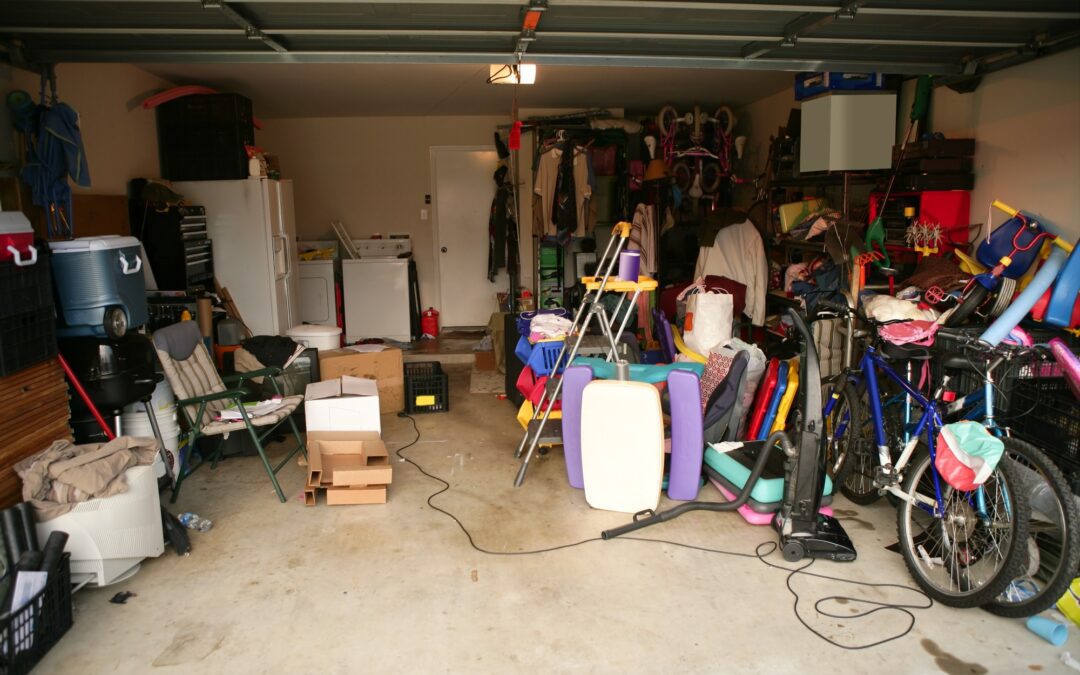Who doesn’t want an all-new garage floor? We’ll bet you do!
Still, when choosing the best flooring for a garage, be realistic. Figure out what you’re starting from, consider the most workable options for your situation, and go from there.
For example, are you planning to tear out the existing floor altogether or try a much simpler garage floor repair? Do you want to pour concrete to rebuild your base, paint or coat the existing one, or cover it with easy-to-remove material?
When it comes to garage flooring options, there are quite a few. We’ll weigh the pros and cons of several to help you choose the best for your home.
Garage Floor Ideas and Options
Concrete provides the foundation for virtually all modern garage floors. Builders pour it when the garage is new, or the floor needs replacing. But these days, concrete floors are often stained, polished, or covered.
Let’s find out how.
Sealers and Other Concrete Treatments
Because concrete is a porous composite material, it can crack, crumble, and absorb fluids. Qualities like these make untreated concrete a mediocre (at best) garage floor material. That’s why installers use concrete sealers to protect the surface.
Rubber Mats
One of the smarter garage flooring options is rubber matting, which lies directly on the concrete floor. Whether cut from a roll or interlocking pieces, this squishy material makes standing work more comfortable.
Another is that it’s relatively easy to take them up and discard them when worn. Rubber mats are very easy to install, but harder to customize and fit than poured garage floor coatings. Plus, rubber can degrade when exposed to petroleum.
Garage Floor Tiles or Squares
If you’re looking for innovative garage floor ideas, consider interlocking garage floor tiles (squares). They’re easy to install (and remove) and come from a range of manufacturers and materials, including:
- Wood composite
- Rigid-core polymer composite
- Rubber
- Lock-Tile (PVC)
These tiles might look like a children’s building toy, but they are strong enough to support cars and other heavy items often seen in garages.
Concrete Coatings
Garage floor coatings are popular, especially given the many recent manufacturing innovations. Perhaps the most basic is latex acrylic concrete floor paint.
A significant advantage of traditional paint is its comparatively low cost. Another benefit is that paint stops concrete from releasing dust.
Don’t expect miracles from floor paint, though.
Many substances found in garages can stain and damage these very basic paints. The floor might end up looking worse than bare concrete.
When selecting a garage floor coating, the stronger and more durable, the better. Many types of epoxy garage floor coatings are available — from lighter density, less toxic for DIYers, to ones requiring trained professionals to install.
The polyurea coating we use resists moisture, UV damage (which makes epoxy resin flooring turn yellow), and a fast cure rate. It also offers a great-looking, stain-resistant finish.
The Best Flooring for a Garage
When most people think of garage flooring options, concrete is often the first that comes to mind. And most garages indeed, have concrete floors — as their foundation, that is.
But the best flooring for a garage doesn’t stop once the installers have poured the mix. Sealing your concrete garage floor is the way to go. You will see fewer, if any, cracks or crumbling, and it’s so much easier to clean.
Garage Force knows how to do garage floor coating the right way, so the floor will hold up for many years without needing any garage floor repair. Reach out today for a quote on coating your garage floor!

